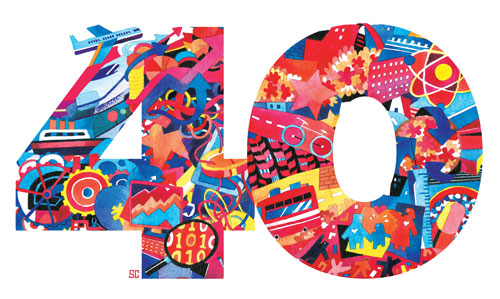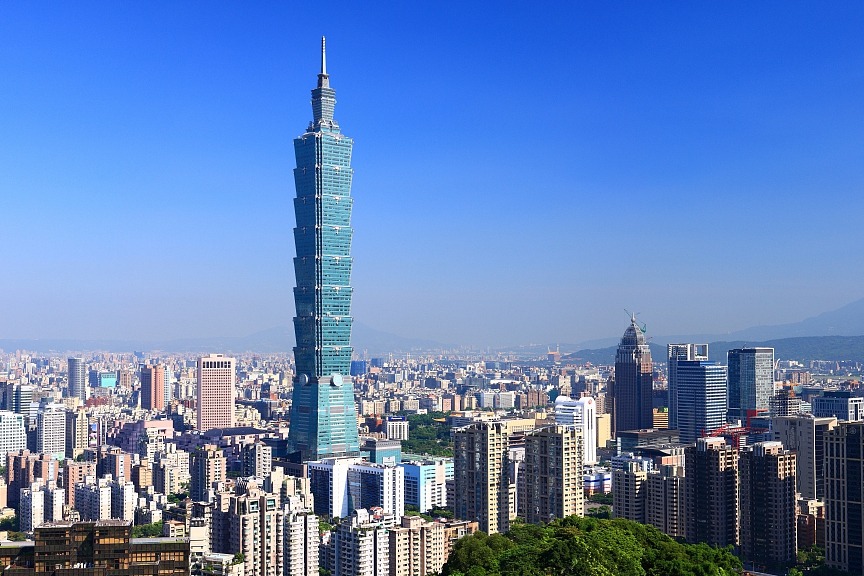China’s reform, opening-up: Three key messages


The past 40 years have witnessed one of the most spectacular changes in history. Not only was China - in its period of reform and opening-up - able to lift more than 800 million people out of poverty, it has also influenced, in a very positive manner, the global economic development.
A personal anecdote: In 2001 I attended, in my then capacity as UN assistant secretary-general for Political Affairs, the meeting between Li Peng, then-chairman of the National People’s Congress of China, and Kofi Annan, then-UN secretary general. Chairman Li pledged that China would not only fulfil the Millennium Development Goals that were declared by the United Nations just a few months earlier, but would also make a significant contribution to their global realisation. China has indeed delivered - both with its own development and with its promises to the international community. This has produced a high level of credibility of China and its policy orientation, a quality that has to be appreciated in discussions about the global role of China today and tomorrow. The first message of the 40th anniversary of China’s reform and opening-up is, that China proved to be highly credible in her vision and policies of development.
Understandably, not all commentators would agree with a positive outlook for the future of China’s global role. Some fear its competition with the West and some even predict the possibility of military conflagrations along the historical pattern dubbed as the “Thucydides trap”. However, there is no inevitability in human history. Dangers, including the real ones, can be avoided, and opportunities can be seized. The first condition for such a positive scenario is to understand the nature of our world and its ongoing changes. The second condition is the ability to work for mutual advantage and seek win-win outcomes in dealing with international problems, big and small.
We already live in a multipolar world. The multi-polarity of our era reaches more deeply than the traditional power politics and considerations of the balance of power. It implies deep interdependence and, at the same time, significant diversity of conceptions of modernity, of domestic order and legitimacy of the state. This diversity has to be recognized in any attempt to build an international order fit for the 21st century.
China will be a major player in this multipolar setting, probably the pivotal one. Moreover, China’s international power will be enhanced by the prospect of growing importance of the developing world, a process that started half a century ago with decolonization. This is an aspect that deserves more attention than was the case in the past years.
The process of decolonization started in the aftermath of the World War II – shortly before the creation of the People’s Republic of China. It has produced its own idea of a New International Economic Order in the mid-1970s, shortly before the beginning of the process of reforms and opening of China. And it has by now produced a number of new strong players in the international arena as well as great needs and opportunities for the future. So, the second message is, that the progress of China and the progress of the global developing world are historically converging.
And there is a third message: The changes of the last 40 years have done away with bipolarity. The emerging international system is likely to consist of multiple overlapping frameworks and competition will be an inherent element of this system. There will always be several powerful players involved in any question of global significance. This is the conceptual understanding of a world of constant interaction among a variety of players, some old and some new ones. While the interactions between the US and China are likely to be ever more important, they are unlikely to lead to bipolarity, let alone to the kind of patterns known in the Cold War era.
It is erroneous to view the US-China relations as a bilateral zero sum game where one side wins and the other loses. The gains and losses are shared by both and there are always more than only two players relevant in each major situation. The bipolar “Manichean” forms of thought no longer correspond to the needs of our era, let alone devise sensible policies. Both China and the US have to consider other players on the international stage Russia, European Union, India, Japan, a variety of developing countries and the dynamics within the groupings such as BRICS and the G7.
The past 40 years have changed China – and the world. The 40 years of opening and reforms of China have produced a historically high level of credibility of its policies. They have also changed the decolonized world and made it an important agent of the future development. And they have done away with bipolarity that had blocked global progress in the recent past. When put together these three messages provide a significant opportunity and responsibility to China as a pivotal state of the future world.
Danilo Türk was president of the Republic of Slovenia from 2007 to 2012. He is currently Non-Resident Senior Fellow at the Chongyang Institute for Financial Studies, Renmin University of China.
The opinions expressed here are those of the writer and do not represent the views of China Daily and China Daily website.


































